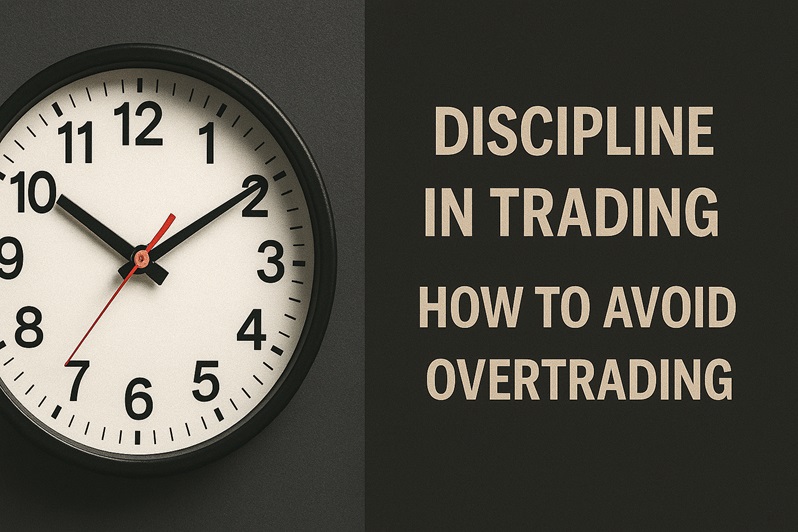
Discipline is the cornerstone of successful trading, and one of its most important applications is avoiding overtrading. While the allure of constant market activity can be tempting, overtrading often leads to unnecessary losses, emotional exhaustion, and poor decision-making. Mastering the discipline to step back, follow a plan, and execute only high-probability setups is what separates professionals from amateurs. This article explores how to recognize and prevent overtrading to maintain long-term trading success.
Understanding the Root Causes of Overtrading
Overtrading doesn’t just happen because of market excitement—it usually stems from psychological triggers. Traders may chase losses, react emotionally to small wins, or feel pressure to “make up” for missed opportunities. These emotional impulses override logic and discipline, pushing traders into setups that don’t align with their strategy.
Another contributing factor is a lack of structure. Without a defined trading plan, traders may execute impulsively, mistaking activity for productivity. Having no clear entry or exit criteria, or failing to respect session limits, often leads to excessive trades that damage performance. Recognizing these behaviors is the first step to regaining control.
Building a System to Reinforce Discipline
Creating a structured trading plan is essential to developing discipline. This includes setting strict rules around the number of trades per day, defining valid setups, and using pre-determined risk management parameters. When discipline is built into the system, it becomes easier to follow—even in the heat of the moment.
Journaling every trade can also reinforce discipline. Reviewing entries, exits, and emotional triggers helps identify patterns that lead to overtrading. Many traders are surprised to find that their best trades occur after periods of patience, not impulsive activity. By reflecting regularly, traders strengthen the mental framework needed to stick to their strategy.
Another key is implementing breaks and detachment techniques. Taking short pauses during the trading day allows for emotional reset and prevents burnout. Overtrading often arises from fatigue or frustration—stepping away can help restore objectivity and improve performance.
Embracing Quality Over Quantity
In trading, less is often more. High-quality trades that align with your plan are far more profitable than a large number of low-quality ones. Professional traders understand that missing a setup is better than forcing a bad one. They wait patiently, trust their process, and accept that opportunities will always return.
Developing this mindset takes time, but it’s rooted in the confidence that trading is a long-term game. By measuring success over weeks or months instead of trades per day, traders can ease the internal pressure to be constantly active. This shift in perspective helps reduce anxiety, improve execution, and lead to more consistent results.
Conclusion
Avoiding overtrading is a vital skill that requires a mix of structure, self-awareness, and discipline. It’s not about trading less for the sake of it—it’s about trading smarter. By recognizing the psychological roots of overtrading, building rules-based systems, and shifting focus toward quality, traders can protect their capital and cultivate long-term success. In the end, discipline isn’t restrictive—it’s empowering.
FAQs
What is overtrading in Forex or crypto trading?
Overtrading refers to executing too many trades—often impulsively—without valid setups or proper risk control.
Why is overtrading harmful?
It leads to increased transaction costs, emotional stress, and inconsistent results, often damaging your account.
How can I stop myself from overtrading?
Use a strict trading plan, set daily limits, track performance in a journal, and take breaks to reset emotionally.
Is overtrading a sign of lack of experience?
Not always. Even experienced traders can overtrade due to emotional or psychological pressure if they lose discipline.
Can automation help reduce overtrading?
Yes, using trading bots or alerts based on strict criteria can help reduce emotional decisions and enforce discipline.
